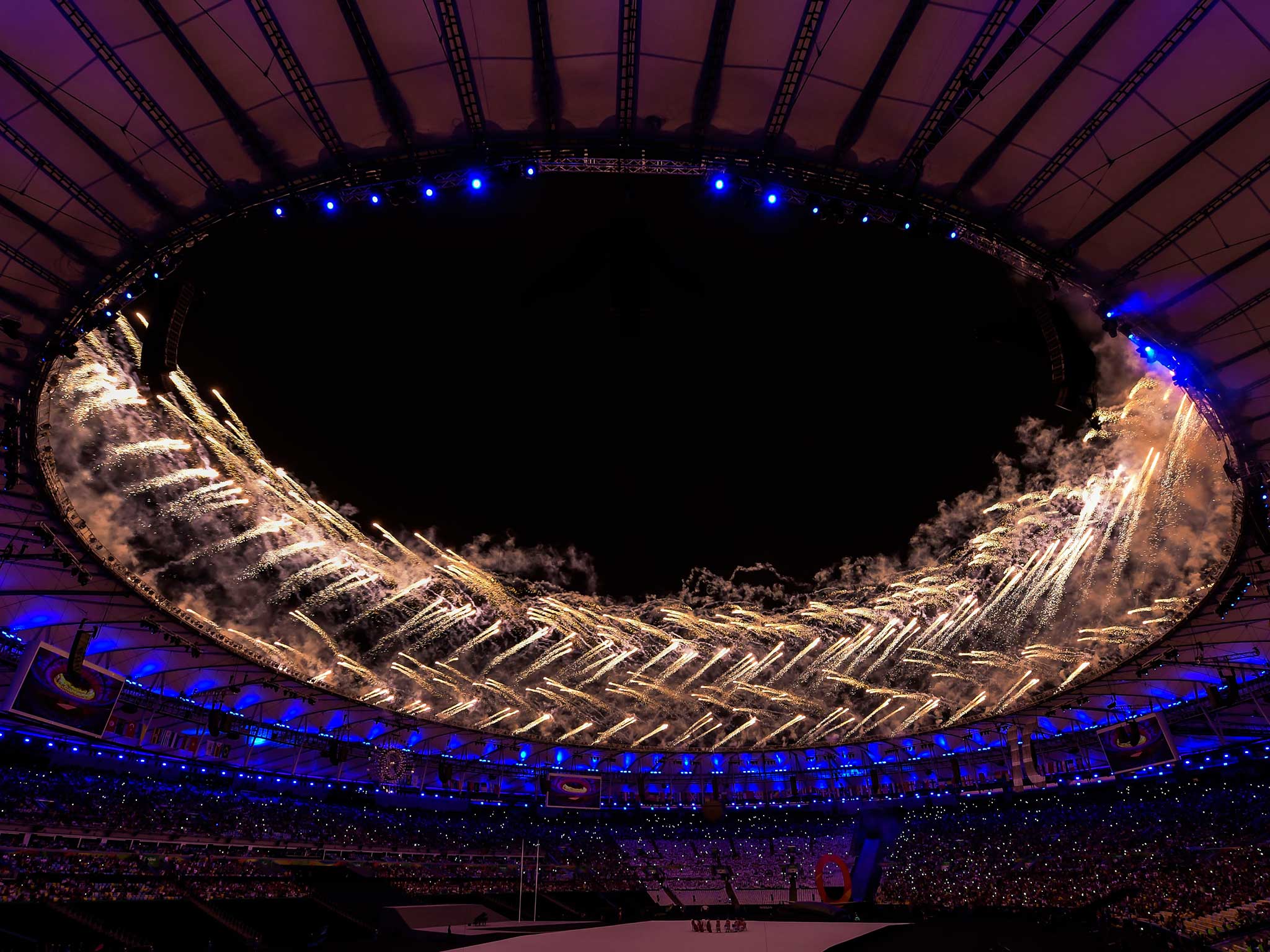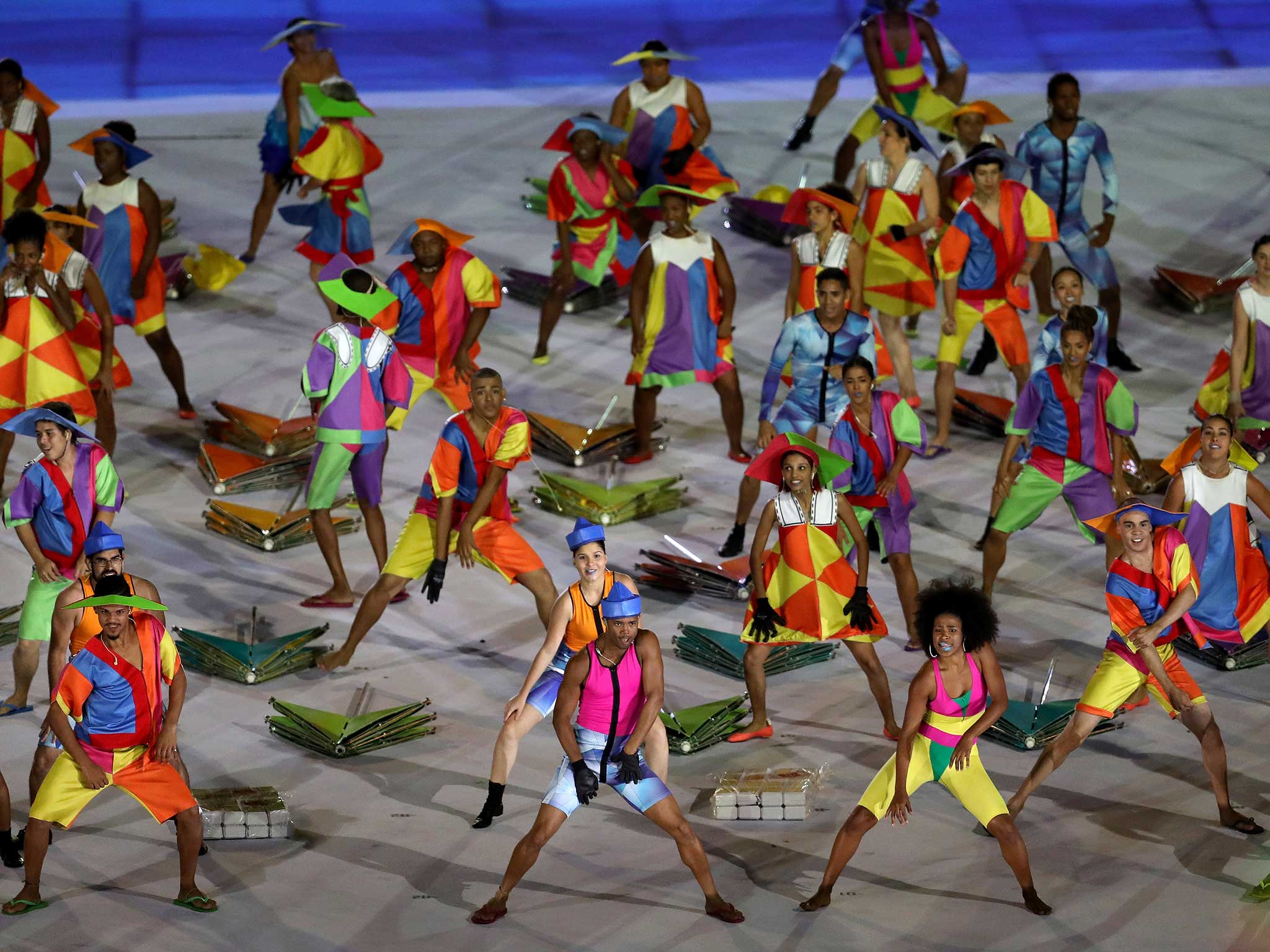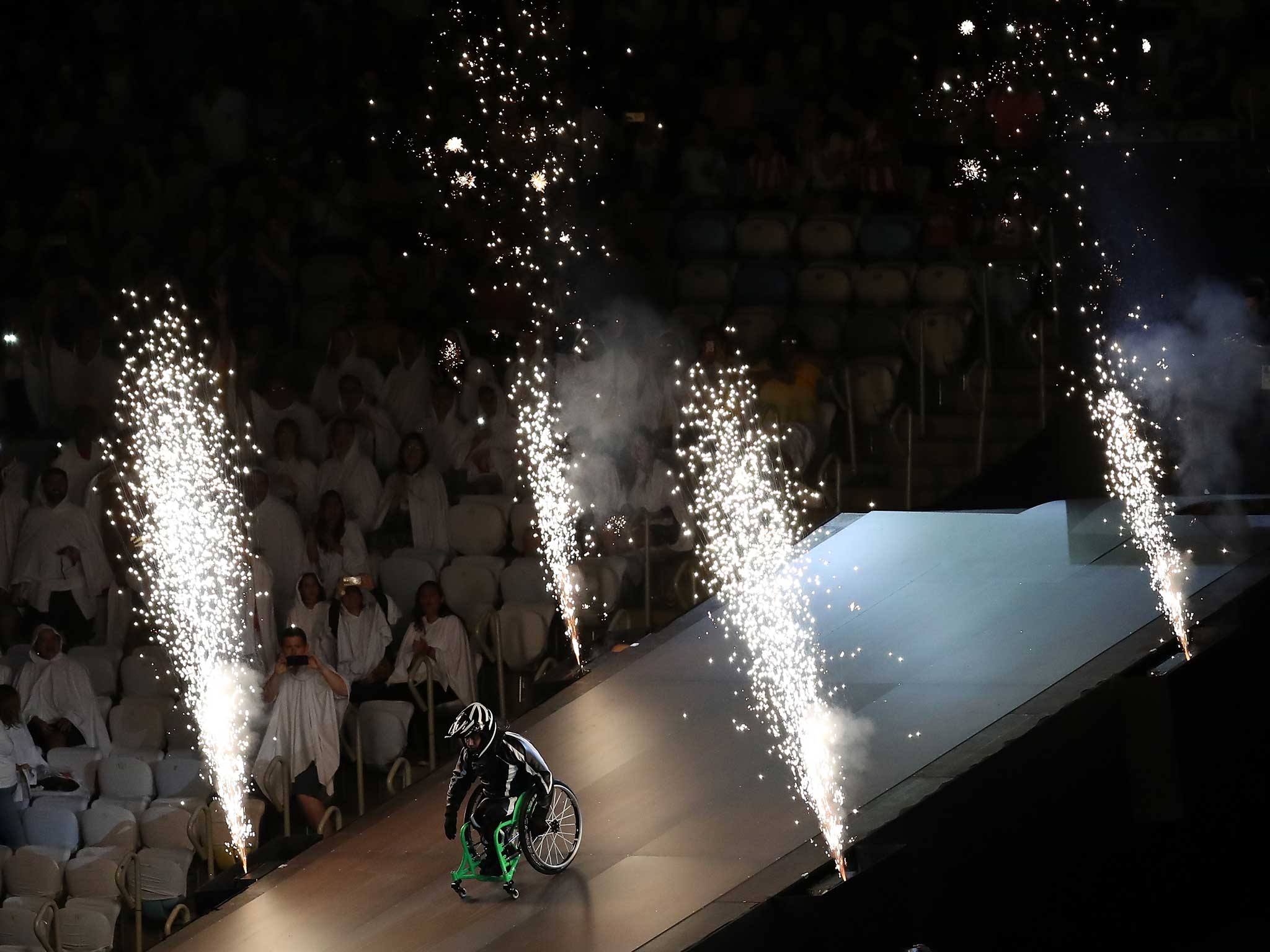Paralympics 2016 opening ceremony: Rio reinvents the wheel as Brazil welcomes back the world in a technicolour haze
This was the Paralympic movement flexing its muscle with an opening ceremony, the brainchild of Flavio Machado, laden with all the colour and warmth of last month's XXXI Olympiad

Your support helps us to tell the story
From reproductive rights to climate change to Big Tech, The Independent is on the ground when the story is developing. Whether it's investigating the financials of Elon Musk's pro-Trump PAC or producing our latest documentary, 'The A Word', which shines a light on the American women fighting for reproductive rights, we know how important it is to parse out the facts from the messaging.
At such a critical moment in US history, we need reporters on the ground. Your donation allows us to keep sending journalists to speak to both sides of the story.
The Independent is trusted by Americans across the entire political spectrum. And unlike many other quality news outlets, we choose not to lock Americans out of our reporting and analysis with paywalls. We believe quality journalism should be available to everyone, paid for by those who can afford it.
Your support makes all the difference.Superhuman endeavour, trials, tribulations and a steady dose of controversy. Just 19 days have passed since the tickertape was swept away on an Olympic Games which transfixed a global audience of billions. Last night, Rio threw its arms wide open again at the Maracanã in front of a raucous, mostly Brazilian, sell-out crowd eager to herald the 15th summer Paralympics.
Carrying the motto Um mundo novo - “a new world” - Rio 2016 will see 173 nations – and 4,300 athletes – take to the tracks, fields, courts and pitches just over half-a-century since Dr Ludwig Guttmann spawned a modest in-house contest at Stoke Mandeville Hospital for patients with spinal injuries.
A nod to the past came almost immediately with Sir Philip Craven, the president of the International Paralympic Committee, packing his bags for Brazil; suitably equipped for his travels with yellow sandals and inflatable armbands during a modest, but no less touching, opening montage chronicling the wheelchair basketball icon’s not so arduous commute to Rio.
This was the Paralympic movement flexing its muscle with an opening ceremony, the brainchild of Flavio Machado, laden with all the colour and warmth which made the XXXI Olympiad such an emphatic show of defiance from a nation crippled by existential crisis. Extreme wheelchair extraordinaire Aaron Fotheringham’s arrival was rather more theatrical, gliding down a 100ft water slide before flipping across the Rio night sky on his chair with fireworks bursting from every angle of the gargantuan Maracanã roof.
On an evening which brought news of Formula One’s imminent multi-billion pound sale to an American media giant, the purple haze emitted from Castelo Branco should act as a reminder that not all sport is stymied by a financial straightjacket. Commissioned by Mayor Ângelo Mendes de Morais to accommodate the 1950 football World Cup, this iconic coliseum has seldom witnessed such a unique spectacle of unbridled charm as this. Um mundo novo indeed.

Cynicism and cupidity invariably remain a part of the Paralympic discussion. It is a measure of how far it has come that athletes are now no longer the plucky underdogs of the sporting world but established international superstars in their own right. The rumbling classification of impairment scandal which has hit Paralympic sport, while undoubtedly a blot on the copybook, is nonetheless a product of the progress made.
Samba music was always likely to play an integral role to proceedings - as it did a month ago - and it provided a surprisingly moving soundtrack to the showpiece event of the evening. In paying tribute to the wheel, the most simplistic yet momentous of inventions, the Roda de Samba sequence literally reinvented it; removing the shackles of the wheelchair and instead lauding it as an empowering and essential part of disabled life.

Team GB flagbearer Lee Pearson, the 10-time Equestrian gold medallist, predicted tears this week but instead beamed from ear-to-ear as he led out his 250 team-mates. Born with arthrogryposis multiplex congenita, a six-year-old Pearson was carried up the steps of Downing Street by Margaret Thatcher in 1980 having been awarded the 'Children of Courage' medal. This was yet another moment for the Pearson photo album.
Great Britain, or Grã-Bertanha in Rio speak, picked up 34 gold, 43 silver and 43 bronze medals in London four years ago, finishing third to China and Russia in the overall tally. One thing remains clear; the August gold-rush which united a nation reeling from a poltical aftershock could yet spill over into September.
Join our commenting forum
Join thought-provoking conversations, follow other Independent readers and see their replies
Comments